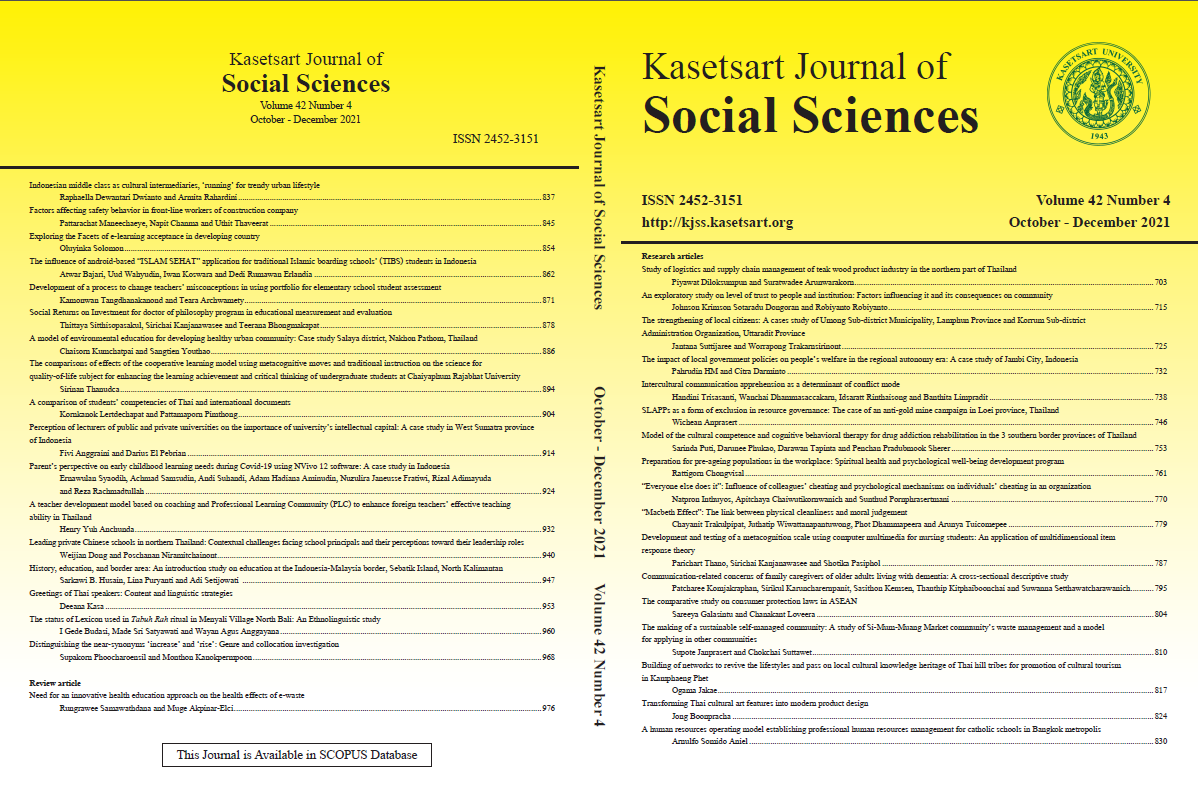Social Returns on Investment for doctor of philosophy program in educational measurement and evaluation
Keywords:
financial proxies, impact mapping, indicators, theory of change, Social Returns on Investment (SROI)Abstract
This study aimed to: (1) investigate and develop impact mapping, indicators, financial proxies, and tool used in the measurement of Social Returns on Investment (SROI) and (2) evaluate SROI for Doctor of Philosophy Program in Educational Measurement and Evaluation. Methods: Evaluation research with mixed methods design was conducted. Applying SROI principles, in-depth interview was conducted with the stakeholders in the production of Ph.D. graduates based on theory of change. Indicators of impact were developed, and the financial proxies – the qualitative values created by the program, were assigned to the impact. These values were subsequently calculated to compare with a monetary value of resources invested in undertaking the program’s activities to assess the social returns achieved in every baht invested in the production of Ph.D. graduates. SROI analysis was operated using impact values, discount rate and SROI ratio. The data were collected from 102 Ph.D. graduates of Educational Measurement and Evaluation Program, Chulalongkorn University. Findings: (1) Impact Mapping. It was found that the inputs consisted of personal investment and social cost. The activities, output, outcomes, impacts were comprised of 6, 4,16 and 10 components respectively. There were 27 indicators of impacts, which could be used in developing the financial proxies. The measurement and evaluation tool of SROI for the production of Ph.D. graduates was a questionnaire, which had the appropriate quality. and (2) The SROI was 23.04 which provided an entailing return of 12.07 to their organizations, 3.65 to the government and 7.31 to themselves and their families.
Downloads
Published
How to Cite
Issue
Section
License

This work is licensed under a Creative Commons Attribution-NonCommercial-NoDerivatives 4.0 International License.
This is an open access article under the CC BY-NC-ND license http://creativecommons.org/licenses/by-nc-nd/4.0/










